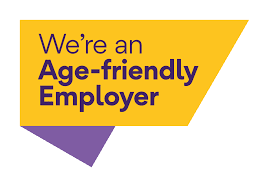Melissa Baxter shares her thoughts on ‘WFH’
In March we were coming to terms with the seriousness of Covid-19 and the mounting uncertainties it brought with it, especially in work. Almost overnight we had to make changes and the majority of us found ourselves working from home (WFH), perhaps for the first time in our working life. As we started getting on with things remotely, it’s unsurprising that it took many of us some time to adjust to the flood of Zoom or Teams invitations and the heavy reliance on email. However, it’s safe to say that the majority of businesses and employees have embraced and adapted to this new way of working and there are definite benefits; getting back hours spent on commuting, savings made on travel and office space, a more balanced work day overall.
Yet, despite the comfort of staying in your pyjamas past lunchtime, we mustn’t forget to consider the other side of the story. Surveys have found that almost half of UK workers have experienced loneliness during this period of lockdown and WFH with some groups being affected more than others. 75% of young people and 50% of women reported feeling lonely. It’s clear that throughout the UK, people are missing the face to face interaction with their colleagues.
Technology has allowed us to continue working, which we are all very grateful for, but it can hinder us in other ways. Technology doesn’t easily allow us to make those work friendships that lead to socialising outside of the office. It makes connecting with management more difficult which may harm career development. Remote working isn’t spontaneous, we can’t bounce ideas off our colleagues, or brainstorm like we would in a face to face situation. Research has evidenced that 1 in 4 workers feel that productivity, creativity and problem solving is negatively affected while WFH.
The pandemic has demonstrated that, when supported by technology, organisations can rapidly adapt their working practices to both maintain operations and support workers during a time of crisis. CIPD reported that many workers have learned a lot from their experience of WFH and were keen to take the lessons and apply them to their day-to-day work in the ‘new normal’. However, technology alone will not lead to effective practices. People professionals are key to embedding these practices, learning from the experience of workers, and ultimately supporting businesses to make the best use of technology in a way that is supportive of both business objectives, employee experience and mental wellbeing.

Contact us
Call us on 07930 356305 or email HQ@russam.co.uk








